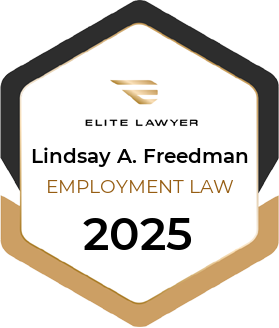How Does the EEOC Protect Employees?
 If you face discrimination at work, you may have heard about the Equal Employment Opportunity Commission (EEOC). The EEOC is a federal agency tasked with protecting American workers from discrimination and harassment. It enforces federal laws that make it illegal to discriminate against a job applicant or employee.
If you face discrimination at work, you may have heard about the Equal Employment Opportunity Commission (EEOC). The EEOC is a federal agency tasked with protecting American workers from discrimination and harassment. It enforces federal laws that make it illegal to discriminate against a job applicant or employee.
Understanding how this agency works and what protections it offers can help you recognize your rights and take action if you face discrimination at your workplace. An experienced Montgomery County, MD employment law attorney can advise you on your protections under the EEOC.
How Does the EEOC Protect Employees?
The EEOC enforces several major federal laws that protect workers from discrimination based on religion, race, color, sex, age, national origin, disability, and genetic information, and it applies to employers with 15 or more employees for most violations. These protections apply to all aspects of employment including hiring, promotions, firing, pay, job assignments, training, and workplace conditions. Sexual harassment, pregnancy discrimination, and retaliation against employees who file complaints also fall under EEOC jurisdiction.
How Does the EEOC Process Work?
Complaint
If you believe you have experienced workplace discrimination, you can file a "charge" with the EEOC. In Maryland, this formal complaint must be filed within 300 days of the discriminatory act. Due to concerns about the possible impact of a complaint at your place of employment, the EEOC keeps your identity confidential during the initial investigation phase when possible.
Investigation and Resolution
Once you file a charge, the agency notifies your employer and may first offer voluntary mediation to resolve the issue quickly. If mediation is declined or unsuccessful, the EEOC begins an investigation, which may include interviews, document requests, and site visits. It evaluates the evidence to determine whether there is "reasonable cause" to believe discrimination occurred.
If the EEOC finds that there is reasonable cause, it attempts to resolve the matter through voluntary conciliation between the parties; if conciliation fails, the EEOC may file a lawsuit in federal court or issue a "right to sue" letter allowing the complainant to file their own private lawsuit. If the EEOC finds no reasonable cause, it dismisses the charge and issues a right to sue letter, giving the complainant 90 days to file a private lawsuit if they choose to pursue the matter further.
Legal Action
In serious cases, the EEOC may file a lawsuit against your employer on your behalf. This happens when discrimination is particularly egregious or affects multiple employees. The agency handles all litigation costs and legal work, although you may still choose to hire private counsel.
Call a Rockville, MD Employment Law Attorney
If you are facing discrimination or retaliation at work, an experienced Rockville, MD employment law attorney can advise you on how the EEOC can protect you. At Freedman Law, LLC we represent employees who have been discriminated against or faced harassment at work. Call the law firm at 410-290-6232 for a consultation.













